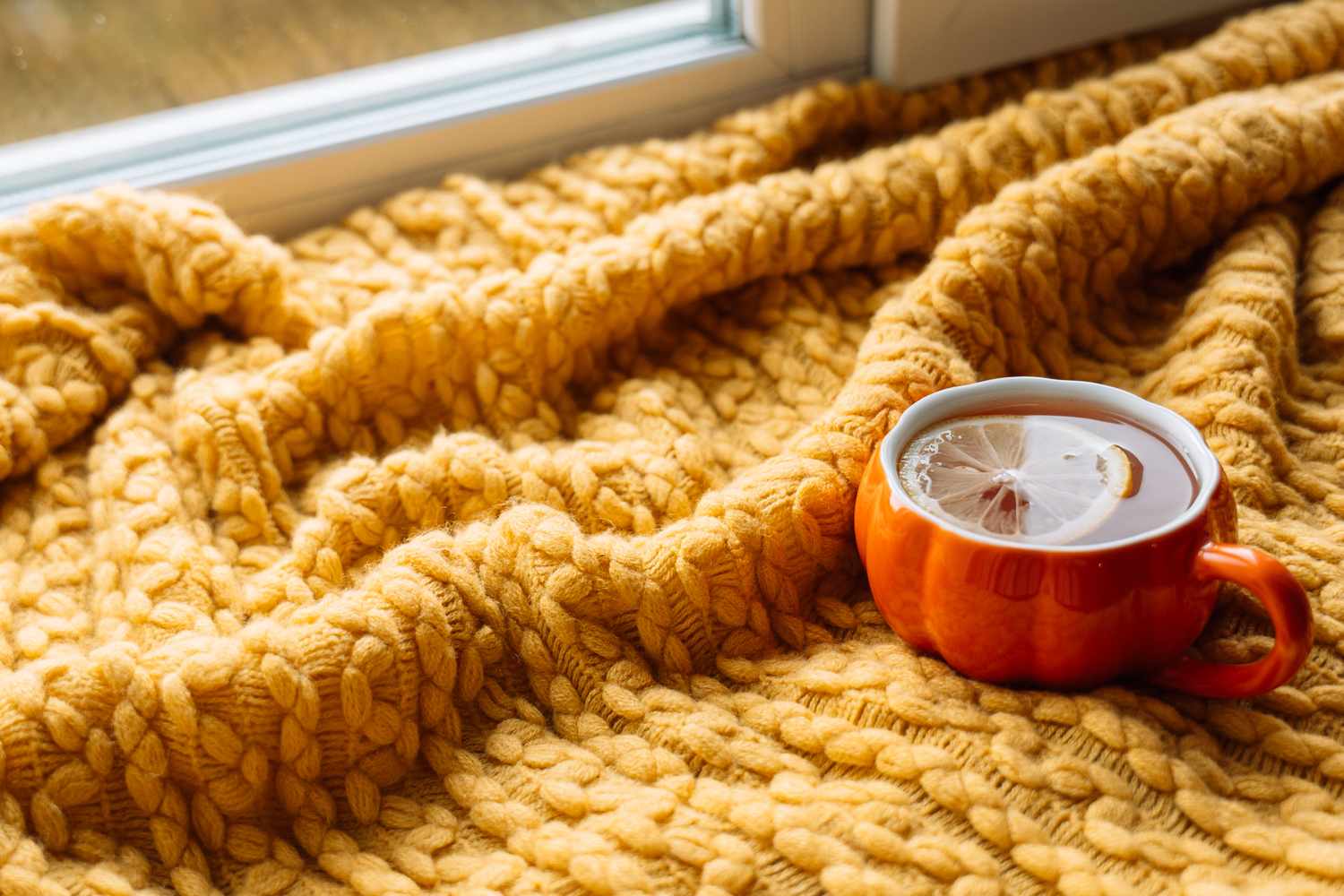There’s a dichotomy of feelings I experience every autumn. On one hand, I’m overjoyed that the temperatures are finally cool and I can break out my cozy sweaters and sweatshirts. (This is especially the case because I’m in Phoenix, where summers can mean an unrelenting series of 100+ degree days). On the other hand, I absolutely dread the shorter days. To me, it’s just so depressing to wrap up the work day when it’s already dark outside, and the earlier sunset also just makes me feel tired and lazy.
Why Shorter Days Take a Toll
I know I’m not alone in feeling a certain way about the shorter days. I am fortunate to have only a mild case of seasonal woes, but some people experience true dread and depressive feelings (see: seasonal affective disorder, aptly abbreviated as SAD). “Usually, our bodies begin to sense the change in sunlight that happens every fall before we start to notice the earlier sunsets,” says therapist Hillary Schoninger, LCSW. “Maybe we are feeling more fatigued, we might have less focus, or we’re just craving the stronger sunlight which energized us all summer long.”
She explains that when the quality and quantity of the sun changes, it brings about many physiological shifts. Our circadian rhythm becomes more compromised and our energy and mood are often affected. Additionally, the sun offers many of us a serotonin boost, which helps regulate moods. “When we have less sun available to us, our bodies react naturally and can be more aligned with defensive features,” Schoninger notes. “Feeling unfocused, sluggish, and unmotivated is often a strong indication that our bodies and minds are craving more additional sun.”
How I Make the Most of Shorter Days
While you or I cannot change the fact that the days will only continue growing shorter until December 21st, there are little things in our control that can make a world of difference. Here are some things I personally do that seem to help.
I Switch Up My Workout Schedule
I know this isn’t feasible for everyone, but changing my workouts from the evening to my lunch hour was a serious game changer for me. It gets me outside of the house in the middle of the day versus going to the gym after work (which takes up those final minutes of sunlight). I also am just an advocate of changing things up every once in a while for the novelty of it. I personally prefer slow and easy mornings, so working out in the AM isn’t for me, but my body and mind love those noon workouts.
I Go on Afternoon or Sunset Walks
I try to get one good walk in a day. In Phoenix, I prioritize these walks for the evening during the summer because it’s so hot during the day. Come winter, though, I aim for a daytime walk, or sometimes around sunset to soak up those pretty, candy-colored skies. “With fewer hours of light, many people naturally spend less time outdoors and in motion,” Schoninger says. “If we can prioritize making sure that we are getting sun exposure as much as we can, we are being proactive.” She says that both sunshine and movement are a boon to our mental health, even in subtle ways that we may not realize.
I Stick to a Consistent Morning Routine
I’ve admittedly never been a super early morning person. I appreciate a good 7 a.m. wakeup call, though, which gives me a couple of hours before work to enjoy some time to myself. This is especially crucial in the wintertime because it can mean the difference between sitting in the sunlight with my coffee and moving slowly and intentionally—or hitting the office chair indoors shortly after waking up and not getting that precious vitamin D and serotonin boost.
I Do Some Work Outside
Again, this isn’t possible for everyone, but if you have the flexibility, then it’s worthwhile. When the situation allows, I like to take a phone call while sitting outside, or do some lighter work on a patio versus at a desk. I have had someone comment on bird noise in the background, but wearing headphones eliminates external noises, so you can soak up the sun even in the middle of the day.
I Push Myself to Socialize & Do More at Night
When it’s already dark after dinner, the struggle to get off the couch and do something (anything!) is so real. Lest I find myself in a TV daze or doomscroll hypnosis, I do my best to pencil in plans throughout the week. For me, that looks like a once-monthly book club meetup with my girlfriends, a bi-weekly trivia night at a local pub, and weekly choir rehearsals that stretch from 7 to 9:30 p.m.
“Social interactions can decrease during winter since colder, darker evenings often lead to more isolation,” Schoninger notes. It’s important to recognize this and work against it, especially if you know that socialization is important for your own mental health. On nights when I don’t want to socialize, sometimes that means working on a project at home, reading a good book, or tending to some light chores. Basically, I try to keep moving and avoid hours of meaningless scrolling. I’m not perfect, but even little efforts can make a big difference.
